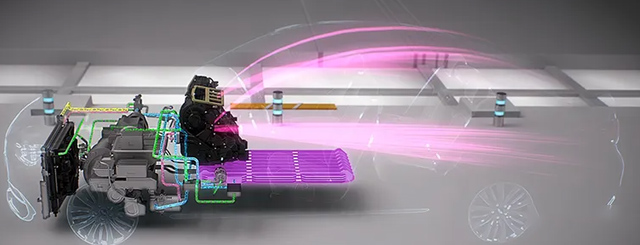The
EV battery thermal management systems (BTMS) are crucial for their performance, charging efficiency, and safety. Since EVs are equipped with key components such as batteries, motors, and controllers, the operating conditions of these components are closely related to temperature. Therefore, effective BTMS not only helps enhance the efficiency of the battery and system but also extends their lifespan. The thermal management system encompasses both cooling and heating needs. Below, we will analyze the reasons behind these needs and the role of the battery thermal management system.
I. Cooling Requirements
Power batteries are the core component of electric vehicles and generate substantial heat during charging and discharging. If the temperature of the battery becomes too high, it can negatively impact its performance, charging efficiency, and even shorten its lifespan. Therefore, timely and effective cooling is critical for ensuring battery safety.
During high-power charging or aggressive driving, the temperature of the battery rises rapidly, especially in DC fast-charging mode, where charging power can reach up to 350kW. In such cases, the battery not only requires a cooling system, but the charging cables connected to the battery also generate heat due to the high current passing through. Therefore, a proper battery cooling solution is key to ensuring charging safety and enhancing vehicle efficiency.
- High-Voltage Power Electronics Cooling
In addition to the battery, the three major components of an EV also include the motor and power control system. The power electronic devices within the power control system (such as on-board chargers, DC/DC converters, etc.) also generate a significant amount of heat. Particularly under high-voltage operating conditions, the heat produced by these power electronic devices increases substantially, which can cause the temperature of the components to rise.
To prevent performance degradation or failure due to excessive temperature rise, EVs require an efficient Battery Thermal Management System (BTMS) to dissipate this excess heat, ensuring long-term system stability. If the temperature exceeds the safety threshold, the system will automatically limit power output and promptly send an overheat warning to the vehicle controller.
The air conditioning system of an electric vehicle not only needs to meet the comfort needs of the driver and passengers but also address the additional heat generated during high-power charging. During DC fast charging, the charging station is directly connected to the battery, and in addition to the battery, the charging cables also generate a substantial amount of heat. Thus, the
GUCHEN battery thermal management system focuses on comprehensively considering cabin cooling, battery management, and temperature control during charging, ensuring that the vehicle maintains optimal performance under various operating
conditions.
II. Heating Requirements
Many people have experienced electronic devices that fail to start or rapidly deplete their battery in cold temperatures. This is the effect of temperature on lithium-ion batteries. Lithium iron phosphate (LFP) batteries are restricted from charging at low temperatures. Although ternary lithium batteries perform better than LFP at lower temperatures, charging power will still be limited when the temperature drops below -7°C. Therefore, heating the battery of an electric vehicle ensures that charging is still possible in winter conditions.
In winter, passengers need a certain amount of heating, which requires the heating function of the BTMS system. The demand for heating is influenced by geographic location, which leads to different designs of thermal management systems in different markets. For example, an electric vehicle supplied to Nordic countries may use a 5kW electric heater, while one supplied to equatorial regions might use a 2-3kW heater or even no heater at all.
Therefore, Our BTMS system is designed to consider the heating needs under different climatic conditions to ensure vehicle comfort and functionality in various environments.
-------
Guchen battery thermal management systems offer various power options, suitable for a wide range of vehicles, including electric buses, light trucks, heavy-duty trucks, and off-road vehicles, with customizable solutions for different applications. 







